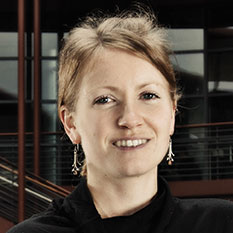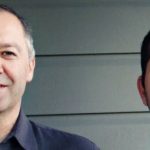Prescriptions for your health startup
Healthcare innovation presents an obvious challenge: It requires highly specialized knowledge across a range of disciplines. Most often, that knowledge must be independently sourced – because doctors are good at being doctors, and entrepreneurs are good at being entrepreneurs. Nate Gross is an exception to that paradigm. Equally fluent in the languages of medicine and business (he holds an MD from Emory and an MBA from Harvard), he’s cofounded two digital health startups: Doximity, a social network for physicians, and Rock Health, which helps grow other digital health startups. In the latter capacity, he’s helped around 40 teams of Bay Area innovators.
Gross will be joining us at Medicine X 2012 to share his expertise, but he was kind enough to give me a sort of preview of his talk. It’s an informal list of some lessons learned so far:
1. Focus on pain points: Doctors encounter hundreds of “wouldn’t-it-better-if” moments in a single day of work. But they’re unlikely to innovate around those moments, for obvious reasons: They work long hours with colleagues who are just like them, in contained, microcosmic environments. Entrepreneurs, conversely, are well positioned to build solutions, but they’re out of touch with the real problems medical professionals and patients face. Most avoid the byzantine infrastructure of the healthcare system unless they’re thrust into it through personal illness or injury.
If you’re interested in healthcare innovation, start breaking through the intimidation by putting yourself into the physical environment. Shadow a nurse for 24 hours or spend a night watching a patient fiddle with the call button in the ICU. Figure out where actual decision makers are hitting hurdles every day.
2. Respect existing infrastructure: Inertia matters. You don’t have to play by the rules of the today’s healthcare system, but you have to understand how and why those rules exist.
When Gross cofounded Doximity, for example, he wanted to modernize the standard of communication across healthcare. But he and his team knew that medical establishments would be unlikely to suddenly reject their pagers and fax machines. So they integrated mobile faxing – a small push toward smartphone-based communication that was backwards compatible with the existing technical system. “It takes 17 years for medical knowledge to disseminate across the country,” Gross says. “You have to play with [the existing order] a little bit in order to maximize chances of success early on.”
3. Assemble a well-rounded team: We tend to assume health startups come from inspired patients or doctors, Gross says. But the complexity of the healthcare system almost demands teams of multidisciplinary collaborators. A complete founding unit should understand the design and technical principles involved in its project and should be equally familiar with the industry – and the regulations and incentive structures that guide it.
Gross points to Agile Diagnosis as an example of startup that has been successful because of its diversity. Its four-person team applied to Rock Health with previous experience at Lockheed Martin, Johnson & Johnshon, and IBM. Together, the group is seeking to reduce the number of unnecessary and expensive diagnostic tests by providing doctors with data-driven clinical decision-making support.
4. Find a technical cofounder: “A lot of people say, ‘I have great idea, I just need someone to do it,'” Gross says. “But odds are if you have an idea, 30 other people have the same idea. You have to out-execute.” Rock Health looks for teams that can build and act, not just envision.
5. Become your own technical cofounder: An abundance of tools – like Code Year – provide online programming instruction. In the hospital, it’s important to be able to speak the language of the patient and the social worker. In a business venture, even if you’re not going to be relying on your own technical expertise, knowing a bit of code will put you in better touch with your technical teammates. It will also give you a basic sense of what’s realistic and possible. Two extremely valuable, easy-to-learn technical skills are MySQL (so you can query the database without requesting help from developers to analyze numbers for your presentations) and Git.
6. Take advantage of an incubator: The complexity of the healthcare system means older, slower parties have dominance over time. Incubators can help level the playing field by putting entrepreneurs in touch with expert advisors.
7. Break through opportunity costs and hesitation: Physicians, who often remain in academic programs through age 30, can be reluctant to learn in the real world. But when it comes to entrepreneurship, the best education is experiential, Gross says. If you have a good idea, go after it. Whether through an incubator or through an academic department like the Stanford d. school, physicians can learn entrepreneurship while doing real work on the projects they’re passionate about.







This is very ambitious, but its a great idea. As you point out, lots of doctors and healthcare professionals realize that there are things that should be changed and room for improvement, but its hard to implement your ideas into a system that is so well-established. Hopefully, it is the patients who will benefit in the end.
Great points, especially the idea of understanding the history of why things are the way they are and how they got that way. We can’t express enough how important it is to surround yourself with the right team . Sometimes integrating the old with the new (people and technology) can be so difficult. I watch this battle in a lot of practices. Good points!